Nutrition Tips for Vegan Athletes
Whatever your sport, from CrossFit to triathlon, bodybuilding to martial arts, it can be done eating a plant-based diet. These nutrition tips for vegan athletes will help you perform at your best and recover well so you can do it all again in your next session.
Below we will cover nutrition basics for vegan athletes and active individuals. From hydration, to anti-inflammatory foods and getting enough protein, this post should help you fill your diet with nourishing foods that will help fuel the active lifestyle you love.
Hydration
Staying hydrated applies to anyone but it’s so important I thought it deserves to be on the list. Your body can’t function to its full potential if you’re dehydrated.
Dehydration can cause:
- fatigue
- headaches
- brain fog
- cramping
- decreased performance
…and can affect our health in a number of other ways.
Sip All Day
Be sure to drink enough water not only during your workouts but throughout the day as well. Hydration isn’t something we can catch up on so its important to hydrate consistently. I’d recommend investing in a water bottle you love and lugging that thing everywhere with you. If I’m working at home, I keep a 1 L mason jar beside me at all times and try to finish 3 of them throughout the day. If I’m out and about, I always bring a water bottle with me.
Sticking with good habits is all about making them as easy as possible. If you have water with you, you’ll drink it!
Start the Day with Water
Before you eat or drink anything else in the morning, hydrate. I find a big glass first thing in the morning really helps kick start my day and improves overall energy. I reach for a large glass of water with lemon first thing every morning. You can also do a bit of lime or apple cider vinegar instead of lemon, if you prefer. A pinch of sea salt can help with re-hydrating as well as it contains trace minerals.
Use Hydrating Sports Drinks
If you’re exercising intensely for more than 60-90 minutes, consider an electrolyte drink such as coconut water to replenish electrolytes lost through sweat.
Coconut water makes a good alternative to high-sugar sports drinks but Gatorade and other commercial sports drinks work too. You can also make your own healthy sports drink by adding a bit of fruit juice and a pinch of sea salt to your water bottle.
You can also use electrolyte powders like Nuun tabs or Vega Hydrator.
Consider Supplementation
Supplementation is not required but can be considered in addition to a whole food vegan diet. If you’re on a budget, don’t even worry about supplements as supplements are just the tip of the ice berg that is a varied, nutrient-dense whole food plant-based diet.
If you’re not already nailing food quality, sleep, hydration and stress management, there is no need to waste your money on supplements. If you’re consistently eating well, getting enough sleep, hydrating consistently and using methods to reduce stress, then you might consider using some supplements but the difference they are going to make are minimal.
Specific supplementation will depend on your diet, your goals and your activity level, so do some research and consider working with a nutritionist or RD if you need some help.
Food first
Ideally, we’d get all these vitamins and minerals through the foods we eat so be sure to include plenty of dark leafy greens, beans and almonds in your diet for calcium, pumpkin seeds, kale, peanut butter, molasses and apricots for iron and flax, chia and hemp seeds for essential fats.
The suggestions below are only supplements to consider and I recommend doing your own research as to what might be helpful for you. Nothing is as powerful as a whole food plant-based diet so start there and then consider supplements to fill in the gaps.
The only Essential: B12
The only thing you need to supplement is B12, which is quite inexpensive. Look for a sublingual B12 spray that provides 500-1000 mcg of B12 and take that 2-3 times a week in addition to B12 fortified foods, or daily if you’re not using any fortified foods. B12 fortified foods include nutritional yeast, cereals and store-bought plant-based milk.
Other Supplement Considerations
- Omega-3 with DHA and EPA
- Creatine
- Vitamin D3
- Protein Powder
- Magnesium
Eat the Rainbow
If you do a plant-based diet right, there’s not too much to worry about in terms of macro and micro-nutrient deficiencies. As often as you can, stick to foods as close to their natural state as possible. A wide variety of whole, plant foods in as many colours as you can find will help ensure you’re getting plenty of vitamins, minerals, phytonutrients, antioxidants, protein and essential amino acids.
Eat colourful foods like:
- berries and dark-coloured fruits
- brightly-coloured vegetables
- dark leafy greens
Eating colourful foods like berries, vegetables and green tea can help to reduce the risk of disease, speed physical recovery and protect cellular health.
A good place to start is loading up on a wide variety of vegetables. I always recommend eating one big, raw salad every day. Load it up with as many vegetables as you like, then add a small amount of healthy fat such as hemp seed or avocado, add some protein if needed, such as lentils or edamame, then top it off with a homemade fat-free dressing.
Recover with Your Post-Workout Meal
Don’t worry too much about the “post-workout window”, as long as you’re getting a good quality meal within a couple hours of training you’re good to go. If you want to take some protein and carbs immediately post-workout, it won’t hurt though!
I try to eat a well-balanced, nutrient-dense meal within 90 minutes, for me, that meal is breakfast. Re-fuelling appropriately is can hep aid in recovery and maintain the ability to train again soon. It’s important to pay attention to fluids, carbohydrates and protein intake.
An ideal post-workout ratio of carbs to protein at this meal is considered to be 4 grams of carbohydrates for every gram of protein however some prefer a ratio of 3:1 or even 2:1. Experiment with different meals and see what works best for you. Failing to replace depleted carbohydrates, protein, and fluids after a workout can decrease performance in the days following, so it’s a very important aspect of your nutrition plan.
If you’re in a pinch, any whole food within 30-60 minutes is a great place to start. Ideally, a post-workout meal should contain a lot of carbs, a decent amount of protein, some antioxidants and a small amount of omega-3 fatty acids to support a reduction in inflammation.
POST-WORKOUT MEAL IDEAS
- oats with protein powder, chia seeds and cherries
- big tofu scramble with lots of veggies and avocado
- sweet potato breakfast bowls
- squash bowls with coconut yogurt, protein powder and berries
- green smoothies
- tempeh hash with sweet potato and veggies
- breakfast tacos with corn tortillas and tofu scamble
- chickpea “egg” salad
- sweet potato and black beans
- pasta with lentils
- quinoa salad with tofu
- chia pudding with protein and fruit
- vegan protein shake with banana and cherries
- wild rice broccoli and edamame salad
Eat more vegetables
I can’t stress this one enough. Make the base of your diet vegetables by:
- snacking on loads of raw veggies
- adding vegetables to all your main dishes
- throw some nutrient-dense greens like spinach and kale into your smoothies
- eat a big salads every day
Eat lots of veggies, then eat some more. A good portion of your daily carbohydrate needs should come from vegetables. Choose plenty of non-starchy veggies throughout the day and include starchy veggies such as squash and sweet potato around your workouts.
Vegetables are a nutrient-dense food meaning for the amount of calories they contain, they’re very high in key antioxidants, vitamins and minerals. I do think eating plenty of raw foods has its benefits but a variety of cooked and raw vegetables is typically best for digestion health.
Pay particular attention to green vegetables such as kale, spinach, chard and a variety of lettuces, as well as fibrous, mineral-rich vegetables like asparagus, carrots, zucchini, broccoli, celery and beets. Rotating your vegetable choices weekly can help increase your intake of a range of nutrients and is great for a healthy gut.
Check out this post on how to food prep to make buddha bowls all week.
Eat enough Calories
I think some plant-based athletes struggle here, especially if you’re training hard so make sure you take the additional energy requirements into consideration. A lot of plant-based foods have a very low-calorie density, so be sure to consider that as well and reach for nutrient-dense foods as needed.
There’s a fine line between eating too little to perform and too much that may cause weight gain. You probably won’t feel very good or have the energy to train if you just eat fruits and vegetables. Include a variety of nuts, seeds, whole grains and legumes to increase the amount of quality calories you’re getting in order to support training.
How to Calculate your Macro Needs
I like the IIFYM.com calculator because you can easily adjust the numbers to your preference. Once you have your total daily energy expenditure (TDEE) in calories, then you can adjust as needed to suit your macro requirements and goals.
[Recommended]: How to get started with flexible dieting.
Try a Food Journal
Finding the right balance of macronutrients at the right amount of calories needed for weight maintenance, gain or loss as well as performance, can be tricky. Using an app like My Fitness Pal can be handy to experiment and see what works for you. I would recommend recording everything you eat for 1-2 weeks as well as writing down how you felt and how your workouts went.
This can help to pinpoint what balance of protein, fats and carbohydrates works best for you, as well as determine how many calories you need to fuel everything you want to do, as well as achieve any weight goals you might have. It can be helpful to check in on your diet every few months as well, just to record a few days to see where you’re at and adjust as needed.
Flexible dieting has been very popular within the CrossFit community and may be something you want to read more about, at least to get you started with eating for performance.
Be Prepared
Preparedness is key to doing a plant-based diet right. That means taking the time to prepare your meals ahead of time, if needed. I always prepare my lunch for the following day the night before. I make sure I have a healthy lunch and a number of snacks ready to go. I usually throw some extra fruit and nuts in my lunch bag just in case I need some additional fuel at some point during the day.
I also do a weekend meal prep that’s an absolute lifesaver during the week.
Vegan Snack Ideas
- Nut-Free Chewy Vegan Granola Bar
- No-Bake Trail Mix Bars
- Almond Coconut Protein Bars
- Mocha Protein Balls
- Apple Oat Protein Muffins
- Hemp Protein Bars
- Hemp and Maca Balls
Reduce Consumption of Inflammatory Foods
Food quality matters. Inflammatory foods include things like:
- refined sugars
- gluten, depending on the individual
- dairy, depending on the individual
- trans fats
If you’re doing your best to stick to a whole food diet, reducing these foods to a minimum will happen naturally. Try to avoid foods with high-fructose corn syrup and eating foods made with wheat flour in moderation.
I would also completely avoid foods like margarine, vegetable shortening and any products that list them, or hydrogenated fats, as ingredients. Instead enjoy fats from foods like avocado and nuts, especially walnuts, cashews, seeds and almonds and use olive or coconut oil for cooking.
Eat More Anti-Inflammatory Foods
Including a range of anti-inflammatory foods in your diet can help to reduce inflammation in the body, prevent illness, improve recovery times, boost immunity and keep you healthy. Some good anti-inflammatory foods are:
- essential fatty acids found in algae
- pineapple (contains bromelain which is anti-inflammatory)
- fruits and vegetables (except potatoes, tomatoes and citrus fruits – lemons and limes are ok though!)
- garli
- ginger
- turmeric
- flax seeds, hemp seeds, chia seeds
- walnuts
- cruciferous family vegetables such as cabbage, cauliflower and broccoli
- half your body weight in pounds in ounces of water every day
Turmeric and ginger blend into smoothies nicely without adding too much flavour but they’re also wonderful in everything from salad dressings, to soups and stir fries.
These foods are also all a good source of various vitamins and minerals, so they’re great to include in your diet either way.
Natural Pre-Workouts
Dates and bananas are an easily digestible sources of carbohydrates you can use for energy before or even during workouts. Carbs give you energy, so before, during and after workouts is the best time to consume them. Those natural sugars provide a nice boost in energy that can help carry you through a tough workout. You might want to consider adding a little protein and fat to those to help balance them out.
Try 1/2 a banana with a spoonful of almond butter, or dates with some nuts or seeds. A small, balanced meal of some protein, some carbohydrates and a little bit of fat about an hour before a workout usually works best for me.
I also love caffeine pre-workout but I train first thing in the morning, so it’s the perfect time to enjoy a cup of coffee before training.
PRE-WORKOUT MEAL IDEAS
- coffee with protein + MCT oil blended in, half a banana
- oatmeal with protein
- dates stuffed with peanut butter, half a protein shake
- low-fat granola with almond milk, half a protein shake
- sweet potato mashed with almond butter and vanilla protein
- fresh berries with hemp seeds, half a protein shake
- chia seed pancakes
- fruit juice with protein powder and nut butter
- toast with small amount avocado
- half an english muffin with nut butter, half a protein shake
Use “Superfoods”
I’m all about getting bang for my buck when it comes to nutrition. That means reaching for nutrient-dense foods as much as possible. I eat superfoods like hemp seeds, chia seeds and spirulina on a regular basis but there are many amazing foods out there that all offer a valuable range of nutritional benefits.
Nutrient-Rich Foods for Athletes
- hemp seeds
- maca
- chia seeds
- goji berries
- blueberries
- cacao
- spirulina
- matcha
- acai
- camu camu
Of course, I don’t include all of these foods in my diet on a daily basis. But keep them in mind as another way to boost performance and recovery when you can include them. One easy way to use superfoods is to add them to smoothies. Check out this post for the best superfoods to add to smoothies.
Up Your Phytonutrient Intake
To fuel up on phytonutrient-rich foods and improve recovery times, eat plenty of berries, tomatoes, orange and yellow fruits and vegetables, dark leafy greens, cruciferous vegetables and some soy. Green and white tea and dark chocolate with at least 85% cocoa content are also great choices.
Fuel with Low-Sugar Carbs
We need carbs to train hard and recovery properly. Depending on your training schedule and goals, the majority of carbohydrates you consume should come from unrefined carbohydrates. Try to avoid refined processed carbohydrates and reach for carbs from whole grains, non-starchy and starchy vegetables and fruits to get the most nutritional value.
Best CARBOHYDRATES FOR VEGAN ATHLETES
- starchy vegetables like sweet potato, potato and squashes
- whole grains like brown rice, oats and quinoa
- fruits like banana, dates, figs, berries, apples and oranges
- legumes like chickpeas, black beans, kidney beans and lentils
Get Protein from Plants
While I don’t think protein-deficiency is room for alarm if eating plant-based diet but I do think it’s important for vegan athletes to make sure they’re getting enough. I include a whole food plant-based protein powder in my diet as well as use plain rice brown and plain hemp protein.
Athletes need more protein than the moderately active individual but it’s not something you have to be too concerned with. I eat about 0.65 grams of protein per lb. of bodyweight and I’m able to reach that through almost all whole foods.
I try to include whole food sources of protein in every meal and snack and then fill in the gaps with a protein powder. The protein in vegetables adds up surprisingly quick and can amount to a good chunk of your daily protein requirements.
Including plenty of beans like chickpeas, black beans and black-eye peas really helps as does plenty of lentils. I love tempeh as a protein source and I eat tofu regularly, as well as edamame. Including these foods at every meal really adds up and you’ll be surprised how much protein you can get simply by being aware of it.
BEST SOURCES OF PLANT-BASED PROTEIN
- Soy products like soy beans, tofu, tempeh, edamame
- Seitan
- Beans and lentils
- Chia, pumpkin and hemp seeds
- Grains like quinoa, buckwheat and amaranth
- Spirulina
- Vegetables like broccoli, peas, spinach, kale and asparagus
[Recommended]: Best Vegan Protein Sources
Vegan Athlete Diet Plan
I’m including 2 sample meal plans for vegan athletes below:
- Meal plan 1 is a higher-carb, lower-fat plan with a 50% carb, 25% fat and 25% protein macronutrient ratio.
- Meal plan 2 is a lower-carb, higher-fat plan with a 30% carb, 45% fat and 25% protein macronutrient ratio.
Both of these meal plans contain a moderate amount of protein with protein making up 25% of the overall calories.
Whether you eat a higher or lower carb diet depends on:
- your body
- your goals
- your genetics
- your sport and activity level
I can’t tell you how to eat, nor should you change how you eat based on what works for someone else. Figuring it out may take some experimentation but most people do best with a moderate carb intake of about 50% with the rest of their calories coming from fat and protein.
Regardless of the macronutrient ratio you use to fuel your sport, food quality and consistency are key to success.
Nutrient Timing
These plans are set-up for those that train early the morning. You can adjust the carbs as needed, placing most of them before and after your workout.
I eat an early morning, pre-workout snack before training and then breakfast is my post-workout meal. If you train in the evenings, you can add more carbs to your lunch and dinner and stick to non-starchy carbs for breakfast.
Much like supplementation, nutrient timing is more of an “icing on the cake” situation. Nail down food quality, overall intake, lifestyle choices and hydration first, then you can fine tune with nutrient timing, only if you want to.
It depends on your goals too. If you’re currently maintaining your weight, you can be more flexible with your food choices. If you have fat loss goals, nutrient timing can be more of a factor but overall intake is still going to trump specific nutrient timing.
Also, don’t be so worried about it that you don’t allow for any flexibility in your lifestyle. Sometimes we go out for dinner, sometimes we have parties and events and birthdays, life is short. We’re all different but if you’re not a professional athlete, chill a little!
One cookie isn’t going to ruin your results, just like one salad isn’t going to make you healthy. What we do over time, most of the time, is what counts.
How Many Times a Day Should I eat?
How many times a day you eat comes down to personal preference. Overall intake is more important than if you eat 2, 3, 4 or more times a day.
As for the meal schedule below, this is just what works for me. I typically eat 5-6 times a day but if you only want to eat 3 times a day, that’s totally fine, so the snacks are optional. If you don’t want to snack, just make your meals a little bigger.
If you like to eat before training, have a small meal 60-90 minutes before you start. This will depend on individual preference and how much time you need to digest.
Some people like training on an empty stomach and that’s totally fine. If you plan to train “fasted”, you might some starchy carbs in you dinner the night before.
Meal Plan 1: Higher Carb/Low-Fat Plan for Athletes
Pre-Workout Snack
Choose one:
- whole grain toast with chia seed jam and half an apple
- sweet potato with blueberries
- mashed squash mixed with vanilla protein and topped with berries
- overnight oats with protein powder and banana
- chopped apple with cinnamon
- homemade granola with blueberries and almond milk
Breakfast
Choose one:
- Simple Creamy Banana Oatmeal
- Carrot Zucchini Pumpkin Oatmeal
- Sweet Potato Breakfast Hash
- Vegan Sweet Potato Breakfast Burritos
- Golden Coconut Apple Oatmeal
Lunch
Choose one:
- Vegan BBQ Chickpea Salad
- Edamame Broccoli Wild Rice Salad
- Vegan Thai Chopped Salad with Peanut Sauce and Tofu
- Vegan Chickpea Salad with Lemon Tahini Sauce
- Roasted Vegetable Lentil Salad
Dinner
Choose one:
- Brown Rice and Baked Tempeh Bowls
- Roasted Potato Avocado Buddha Bowls
- Vegan BBQ Tofu Bowls
- Vegan Sweet Potato Tofu Bowls
- Easy Vegan Spaghetti Squash Noodles
Snacks
Choose as needed:
- berries
- apple and almond butter
- steamed broccoli
- veggies and homemade hummus
- cooked spaghetti squash
- roasted veggies with tahini
- Simply Protein bar
Meal Plan 2: Lower Carb/Higher-Fat Plan for Athletes
Pre-Workout Snacks
Choose one:
- butternut squash with blueberries, coconut yogurt and almond butter
- homemade coconut flour bread with sunflower seed butter
- grain-free nut and seed granola with blueberries
- chocolate chia seed pudding
- overnight n’oatmeal made with coconut, hemp seeds, flax and almond flour
Breakfast
Choose one:
- tofu scramble with kale, onion, mushrooms and peppers with a small piece of toast or sweet potato with nut butter, and some avocado
- marinated tempeh with steamed kale and sweet potato
- baked tofu with steamed broccoli and spaghetti squash
- sweet potato and kale cooked in avocado oil, topped with hemp seeds
Lunch
Choose one:
- buddha bowl with a couple big handfuls of greens, pumpkin seeds, hemp seeds, lentils, edamame and baked tofu
- healthy vegan cauliflower fried rice
- vegan pineapple cashew cauliflower rice
- big salad topped with marinated tempeh, shredded cabbage and roasted veggies, tahini, nuts, seeds and avocado
Dinner
Choose one:
- big bowl of zucchini noodles with pesto, broccoli and seitan cooked in avocado oil and topped with nutritional yeast
- coconut cauliflower rice buddha bowl
Snacks & Desserts
Choose as needed:
- chia seed pudding
- roasted cabbage with tahini
- steamed broccoli with tahini
- avocado with salt and pepper
- homemade flax crackers
- homemade vegan “keto” bread with avocado or nut butter
- paleo energy bars
- paleo coconut bars
- Simply Protein bar
Vegan Athlete FAQ
It can’t hurt but it’s not necessary. As long as you’re eating a high-quality, nutrient-dense meal with carbs, protein and fats within an hour or two, you’re good to go!
It depends on your goals. If your goal is fat loss and you want to create a weekly calorie deficit, you can reduce carbs on your training days to bring your overall calories down a bit. If you’re maintaining your weight, focusing on performance or trying to put on muscle, there’s no need to eat low-carb.
I would recommend eating a moderate amount of carbs coming from low-sugar sources such as non-starchy veggies, starchy veggies and some whole grains, legumes and fruit.
There’s no magic macro ratio for weight loss. You need to create a slight calorie deficit in order to lose weight but lifestyle factors also play a roll. It’s not quite as simple as calories in vs. calories out.
To set yourself up for success, while you could eat junk food and still lose weight, I would recommend focusing on getting protein at every meal, getting your carbohydrates from low-GI, unrefined carbohydrates and eating some healthy fats.
For most people that looks like 50% of your calories coming from carbohydrates, with approximately 25% coming from fats and 25% coming from protein. From there you can adjust that ratio depending on what works for you while staying within an appropriate amount of calories for your goals.
You can use a macro calculator to get a starting point for how much you should be eating. Macro calculators take factors like age, height, sex, lean body mass and activity into account to predict your overall energy needs.
You first determine your BMR, or basal metabolic rate, which is an estimate of the energy requirements needed to maintain vital bodily functions such as breathing and pumping blood, ie. what you’d burn if just lay in bed all day. Your BMR is then calculated by another number based your daily activity to determine or TDEE, or total daily energy expenditure. This is an estimate of the total number of calories you burn each day, including activity.
This number is a good place to start but keep in mind, macro calculators do not take into account factors such as your current health, your metabolism, if you have a history of dieting or disordered eating, specific recovery needs, exact training intensity or genetics, so they don’t always tell the whole story. If you have a lot of muscle mass and have been eating enough over the years, you may need more calories to maintain that muscle mass.
This is where tracking and monitoring can help determine your unique needs. Listening to your body goes a long way too.
Keep it Simple
As I went through this post, I realized there’s a common theme throughout. All of these aspects of sports nutrition for vegan athletes happen naturally when you eat a wide variety of whole food, plant-based foods and minimize your consumption of highly processed foods.
Eat real, whole food and you’ll be able to fuel performance, recovery well, train hard and feel great while doing it. Please keep in mind everyone is different caloric requirements and macronutrient ratios will vary person to person however we can all benefit from eating nourishing, whole foods.


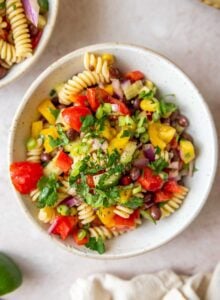
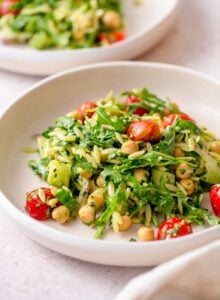
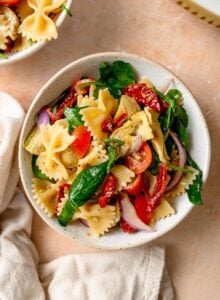
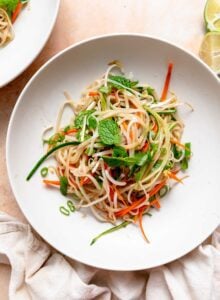
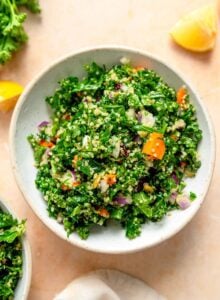
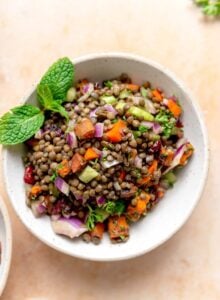
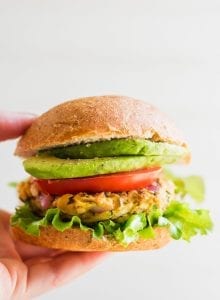
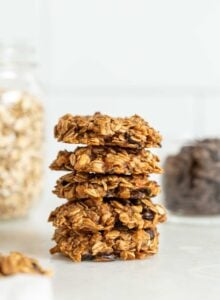
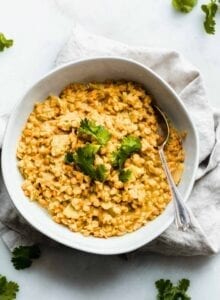
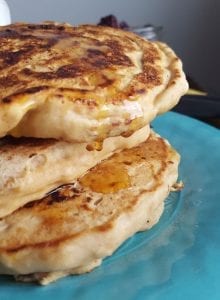
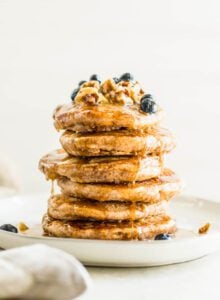
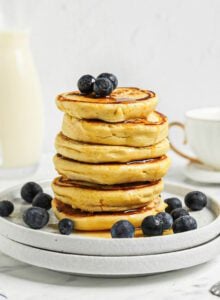
Thank you for sharing all of this! I have spent hours researching macros for vegan athletes and I haven’t had much success up till now. With my body-type being an endomorph I need to eat a low carb higher fat diet and increase by protein as I am weight lifting and doing cardio 6 times a week. I have struggled with protein and carb macros trying to stay in my limits for the day. I started a vegan diet in Oct but started to realize how many carbs are actually in a cup of beans , quinoa, even fruits and veggies. I stayed stuck at the same weight for 3 months. I then switched back to meat trying to get enough protein and keep my carbs low but this has given me hope that my body type can still stay vegan which is what I want to stay on as meat makes me feel like crap! I was easily going way over what I should be having in a day before as a vegan. This article has given me hope that I can actually stay vegan while trying to count macros and lose weight with an endomorph body type.
Thanks for providing this !
Great and awesome post on tips for vegan athletes! This is very informative!
Thanks for this nutrition tips, very on point.
Thanks for this great post. Love your blog, very helpful tips. Your recipes are easy and nutritious while also cost saving.
Thanks for this awesome post on tips for vegan athletes! This is very informative!
Did you really start this article recommending creatine for vegans? You didn’t feel the need to disclose that it’s not a vegan product and that there are no forms of vegan creatine. You also do not essentially need it to build muscle mass. It’s naturally produced by the human body therefore unless your body is inefficiently producing it, you don’t need this. NOT ONE OF MY VEGAN ATHLETES TAKES CREATINE SUPPLEMENTS. Furthermore, the one you have linked to is most definitely not even veggie friendly. Ethics in what you post and keeping a very honest page, Be careful of what you are recommending without a license to do so. Most of the supplements you recommended are not the vegan versions. Not only that there are several companies which certify products for vegans, making sure whats in the bottle is truly vegan. Be more up front and do better reseach
Thanks for your feedback, Callie. I actually don’t use any sports supplements anymore, except for some protein. I did mention they are only considerations and not required by any means, and that anyone interested in supplements should work with a licensed professional if needed, and do their own research before adding anything to their diet. I still think creatine is a great supplement for those that want to use it. Anyhow, I appreciate your thoughts!
I think this comment is worth updating for anyone reading. not sure if this was even true then but is definitely not true now. There are many vegan creatine products. AND some really good studies suggesting adding creatine to your diet can be very beneficial. This is a section from a good study on the NCBI website titled “Benefits of Creatine Supplementation for Vegetarians Compared to Omnivorous Athletes: A Systematic Review”:
‘It should be noted that although creatine is found mostly in animal products, the creatine in most supplements is synthesized from sarcosine and cyanamide [39,40], does not contain any animal by-products, and is therefore “vegan-friendly”.’
And this is part of the conclusion:
“Taken together, creatine supplementation has the ability to increase performance in vegetarians as well as omnivores; however, the research is not conclusive on whether vegetarians show a greater increase in performance than their omnivore peers”
Hope that helps anyone reading this. Thanks. James. 05/02/2021
Thanks for the input, James!
I love your blog i’m starting a plant based diet and i’m finding it very helpful. Your recipes are easy and nutritious without being very expensive, which is what i need. Keep doing what your doing, its greatly appreciated!
Wonderful! Well, that’s how I like to cook…easy, nutritious and inexpensively! Thanks for the comment.
Love this post! It’s so important to recognize and understand what your body needs to stay healthy and active. You emphasize exactly what nutritional sources and eating habits will make for the best lifestyle. Nicely done! Thanks for sharing!
Thank you for all your awesome info! I have recently switched to almost all vegan in January & am trying to move into eating in my macros & your blog has been a huge help. I wonder if you could share who your nutritionist is?
Thank you!
Anne (@annesgettingfit)
Hi Anne, thanks for your comment! I’m so glad you have been finding my blog helpful. I don’t have a nutritionist, this is all based off my own research and experience. I did recently work with Working Against Gravity for 12 weeks but they simply give you your macros and the rest is up to you, they don’t tell you what to eat or provide any meal plans. You can also calculate your macros using the links provided above at Eat to Perform or IIFYM.com. All the best!
Thank you so much for these tips! I see a lot of vegan lifters/fitness models/bodybuilders who have amazing figures but they do eat a lot of CLIF bars, preworkout and energy drinks and a lot of processed foods. It’s not that they’re bad people or they’re wrong, but it’s important to stick to the whole plant-based foods too! I’m in love with the food you captured too 🙂
Those things definetely have a time and a place but certainly shouldn’t be the base of any diet. I eat CLIF bars and other convenience foods sometimes, they’re super handy in a pinch…but agreed, start with plain, ol’ whole foods and go from there!